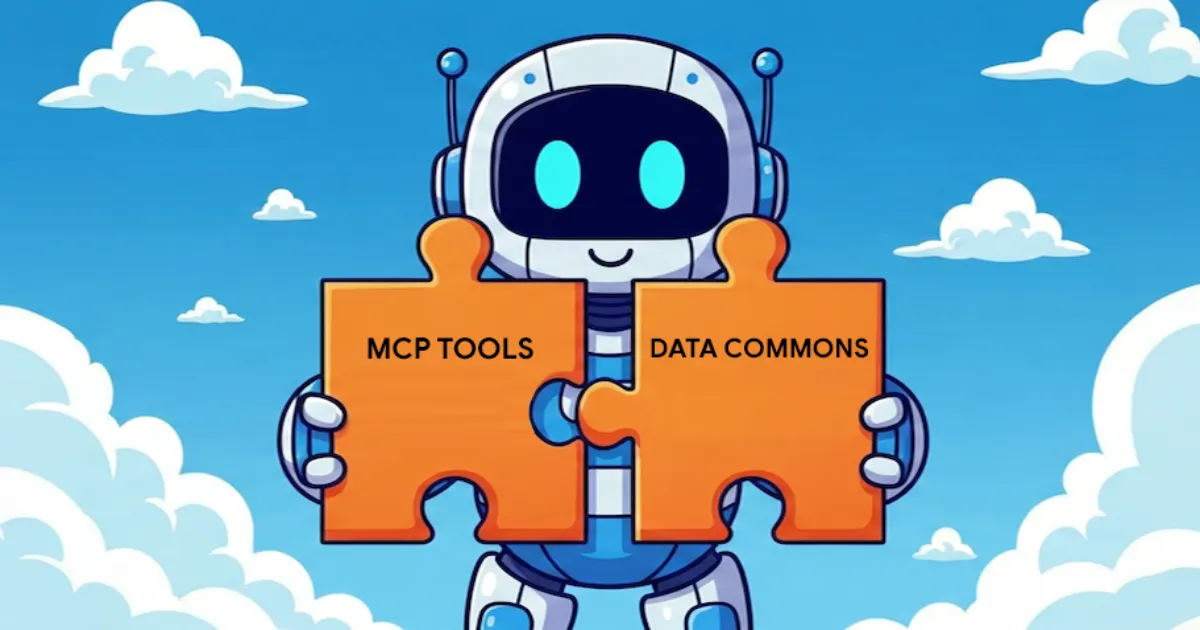Google debuts Data Commons MCP Server for AI access to public data

Google is transforming its massive trove of public data into a powerful resource for artificial intelligence with the release of the Data Commons Model Context Protocol (MCP) Server. The new tool enables developers, data scientists, and AI agents to query real-world statistics using natural language, making it easier to ground AI systems in verified information.
From Public Data to AI-Ready Context
Launched in 2018, Google’s Data Commons aggregates datasets from a wide range of sources, including government surveys, local administrative records, and international organizations like the United Nations. Until now, accessing this data required a degree of technical expertise. With the new MCP Server, however, developers can integrate the data seamlessly into AI applications through natural language prompts.
This shift comes as AI systems face criticism for being trained on noisy, unverified web data, which can lead to inaccuracies and “hallucinations.” By providing high-quality, structured data in a format that AI models can easily process, Google aims to offer developers a reliable foundation for fine-tuning their systems.
“The Model Context Protocol is letting us use the intelligence of the large language model to pick the right data at the right time, without having to understand how we model the data, how our API works,” said Prem Ramaswami, head of Google Data Commons.
What Is MCP, and Why It Matters
First introduced by Anthropic in 2023, the Model Context Protocol is an industry standard designed to connect AI systems with external data sources. It allows AI agents to retrieve relevant information from tools, repositories, or APIs without requiring manual integration. Major companies, including OpenAI, Microsoft, and Google, have embraced the framework as a way to ground AI outputs in contextually relevant, real-world data.
While others have experimented with MCP for model integration, Ramaswami’s team focused on making Data Commons more accessible through the protocol — effectively bridging census data, climate statistics, and other public resources directly into AI workflows.
Real-World Applications: The ONE Campaign
Google has already partnered with the ONE Campaign, a nonprofit focused on improving public health and economic opportunities in Africa. Together, they launched the One Data Agent, which uses the Data Commons MCP Server to surface tens of millions of financial and health data points in plain language.
The collaboration began earlier this year when the ONE Campaign prototyped its own MCP implementation. That proof of concept inspired Google’s Data Commons team to build a dedicated MCP Server, officially unveiled in May.
Getting Started
The Data Commons MCP Server is open and compatible with any LLM. Google has released multiple entry points for developers, including:
- A sample agent in the Agent Development Kit (ADK) via a Colab notebook.
- Direct access through the Gemini CLI or any MCP-compatible client using the PyPI package.
- Example code available on GitHub.
The Bigger Picture
By opening up access to its Data Commons via the MCP Server, Google is betting that grounded, verifiable datasets will be essential for the next generation of AI. As the technology industry races to build smarter and more reliable AI systems, Google’s move positions it as a key provider of the data backbone those systems require.





